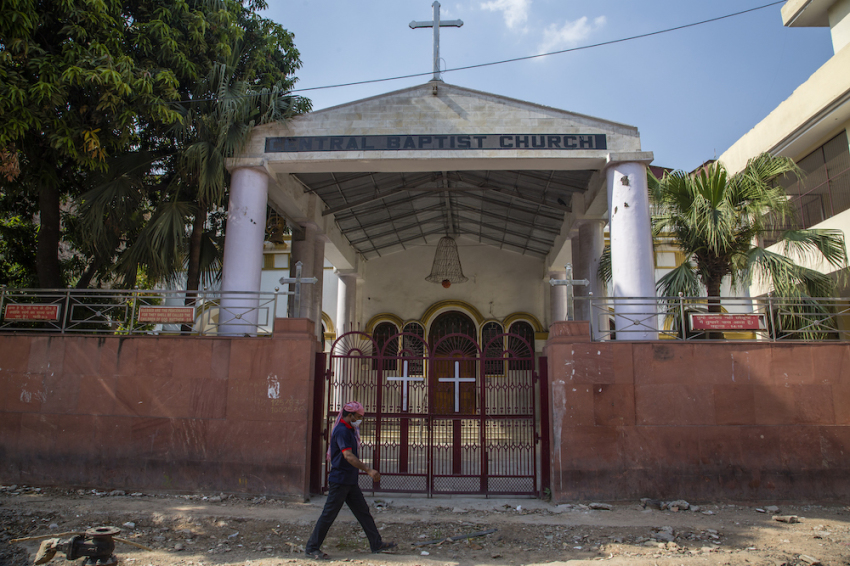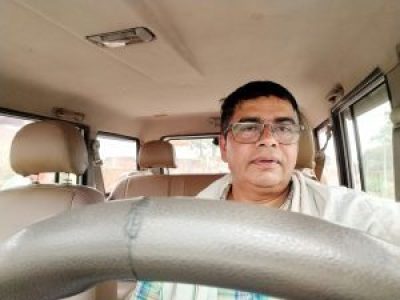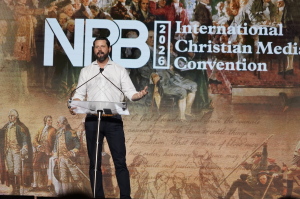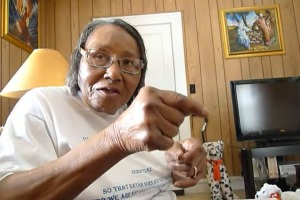Pastor beaten, accused of being leader of ‘conversion racket’

NEW DELHI, India — Pastor Josemon Pathrose spent nearly all of February in jail and finally got his confiscated vehicle back after four months. The harassment and criminal charges he’s endured at the hands of Hindu extremists are not uncommon in India.
Pastor Pathrose and another Christian were driving back to their base in Gwalior, Madhya Pradesh state from Uttar Pradesh state on Feb. 3 when they stopped in Khudatpura village, Jalaun District, to visit a family who had attended his online meeting.
As they were having tea, members of the Hindu extremist Rashtriya Swayamsevak Sangh (RSS) and Vishwa Hindu Parishad barged in, alleging the 55-year-old pastor was visiting to fraudulently convert people. Police soon arrived and arrested Pastor Pathrose and his companion, seized his vehicle, Bibles and literature and took them and three other Christians to the Madhogarh police station, he said.
“They slapped us as they questioned us,” Pastor Pathrose told Morning Star News. “They called me the leader of the ‘conversion racket’ and beat me more than my friend.”
Officers asked them how much money they offered for each conversion to Christianity, how many people had they converted, where they got foreign funds for conversions, how many places had they evangelized, and “Who else is in your gang,” among other questions, the pastor said.
Also arrested was the adult son of the host family and his friend, the pastor said.
A Hindu named Abhishek Singh filed a complaint alleging that Pastor Pathrose and his team offered him 200,000 rupees (US$2,400) “and further benefits” to convert to Christianity, an accusation the pastor roundly denies, but police filed charges unrelated to fraudulent conversion: “Deliberately outraging religious feelings by insulting its religion or religious beliefs” (Section 295A of the Indian Penal Code), “promoting disharmony” (153A), and “statements creating or promoting enmity, hatred or ill-will” (505-2).
They seized his vehicle and the Bibles under Motor Vehicle Act Section 207, which allows authorities “to detain and take action against vehicles found being driven without the necessary permits and registration. They can, even, seize the vehicle if it is found to be used for any illegal purpose.”
Pathrose runs a Christian literature shop in Gwalior and was carrying the Bibles and literature to display at a 50-day trade fair where he had rented a stall.

“I have been renting a stall in this trade fair for many years. I run the stall every year under the name ‘Bible Shop,’” Pathrose informed the questioning officer. “I have all the required permissions and documentation, and I pay a rent of 25,000 rupees per month.”
The pastor had 13 Bibles, 50 New Testaments and a pack of Christian booklets to display at the stall, he said.
“When the police came to arrest me, I was not preaching, nor carrying a Bible,” Pathrose told Morning Star News. “My Bibles and literature were in my truck. Is it a crime to carry your own religious texts in your vehicle?”
His vehicle, mobile phone, cash and all Christian literature, including the Bibles, were seized, and his friend’s phone and cash were also confiscated.
Pathrose also refuted the complainant’s allegation of fraudulent conversion, saying he had never seen, known or met him before as it was his first visit to Khudatpura village.
For the next two days, local media channels and newspapers branded Pathrose the leader of a “conversion racket” and portrayed all the arrested Christians as “gang members,” he said.
Officers kept the two Christians at the police station for about 30 hours before presenting them before a judge who sent them to Orai jail in Jalaun District without questioning them, Pathrose said.
“It was evident they had orders from authorities not to spare any Christian,” he said. “They had no reason to arrest us, so reasons were being formulated during our interrogation. We were assaulted and interrogated, almost forcing us to say something that would give them a reason to file a case against us.”
Pathrose said police kept the three others arrested separate and also assaulted them. They were presented before a different judge and released the next day; the pastor was unsure if they were required to post bail.
The arrested son of the host and his friend were kept separately. The son was taken from the police station to take his undergraduate annual exam before he and his friend were released without charges, the pastor said.
Jail and legal battle
Pathrose described conditions in the jail as “pathetic,” including “bullying, extortion and mental torture.”
The Jalaun Junior court rejected their bail plea, so their lawyer applied for bail in the Orai District Court, which on Feb. 22 ordered their release on a bail bond of 50,000 rupees (US$600) each. As it was difficult to find sureties in an area unknown to them, they faced a long wait before their release, as “the documents had to pass four stringent tests for validation before they would be considered,” the pastor said.
Pathrose and his friend were finally released on March 1. The same day, he applied to get his confiscated belongings back. Authorities told him he had to get a bond surety of 50,000 rupees (US$600) for his mobile phone, Bibles, literature and 3,500 rupees cash, while his friend had to submit a 25,000 rupees (US$300) surety for his phone and 300 rupees cash.
“It was so hard for us to find two more guarantors,” Pathrose said. “After much persistence, we finally somehow managed.”
When he went to retrieve his vehicle, officials required another surety bond of about 275,000 rupees (US$3,300).
“I felt utterly distressed,” he said.
After hearing his pleas, officials accepted a bond of 125,000 rupees (US$1,500). Arranging this large amount was difficult, but he finally persuaded a Christian to submit papers making his tractor available as surety.
Pathrose went to collect his vehicle, officials told him he couldn’t take it due to a ticket issued for missing papers, though he said his papers were up to date. They forced him to go to the Orai court to pay a 7,000 rupee fine (US$85), but “no receipt was issued,” he said.
When he insisted, “they wrote on a plain paper and gave it,” he said. “Everything seemed fishy.”
After making all payments, when Pathrose finally went to get his vehicle, police told him to return the next day. He continued to try get his vehicle back for three months, riding 95 miles on a motorbike in scorching summer heat every time they had to arrange for bonds and documents.
“From March 1 till May 30, we were called for our stuff several times,” the pastor said.
He finally got his vehicle back on May 30, but in bad shape. “The central locking system was broken, the side mirrors vandalized,” he said. “I felt so sad and miserable that after running from pillar to post, with all my paperwork, I finally got my truck in that condition.”
Repairs will cost him more money.
“The police, lawyer and jail are a bigger torment to us Christians once arrested than the RSS outside the jail,” Pastor Pathrose said. “For us, we suffer both outside and inside.”
While police investigate, the two Christians can appeal in the High Court to dismiss their case. A policeman told the pastor that the host of the house where they were arrested, Har Narayan, is going to testify against them.
Pathrose added, “The host family has been severely threatened, and they have broken all contacts with us. Under pressure, they are giving statements against us.”
India ranked 11th on Christian support organization Open Doors’ 2024 World Watch List of the countries where it is most difficult to be a Christian. The country was 31st in 2013, but its position worsened after Prime Minister Narendra Modi came to power.
The hostile tone of the National Democratic Alliance government, led by the Hindu nationalist Bharatiya Janata Party (BJP), against non-Hindus, has emboldened Hindu extremists in several parts of the country to attack Christians since Modi took power in May 2014, religious rights advocates say.
Morning Star News is the only independent news service focusing exclusively on the persecution of Christians. The nonprofit's mission is to provide complete, reliable, even-handed news in order to empower those in the free world to help persecuted Christians, and to encourage persecuted Christians by informing them that they are not alone in their suffering.



























